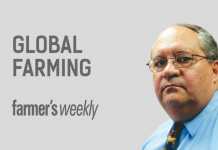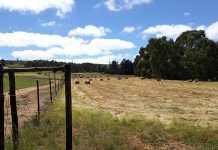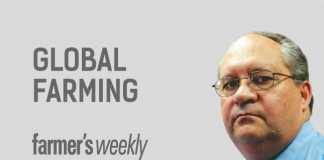Former president Thabo Mbeki once gave a speech entitled ‘I am an African’. It highlighted the fact that we in South Africa are all Africans, and it was generally well-received. Unfortunately, since then, politicians have been acting as if the ‘previously advantaged’ are no longer included in their definition of ‘Africans’. This aside, politicians tend to be highly optimistic about the future growth and development of Africa. Is this not misplaced, given the political unrest, rigged elections, famine and corruption that continue to prevail on the continent?
Think again. In spite of all its problems, Africa is growing in terms of population, income and urbanisation.
By 2050, two billion people will live in Africa, one-fifth of the global population. The GDP growth of most African countries will exceed 6% per year by 2015. In 2010, a total of 414 million, or 40%, of the African population was urbanised. By 2030, the urban population will exceed the rural population. By 2050, some 1,2 billion people, or 60% of the total African population, will live in cities. The fastest-growing of these are Dar es Salaam, where 80% growth is expected from 2010 to 2025, Nairobi (78% growth), Kinshasa (70%) and Luanda (65%).
So it’s certainly realistic to be an ‘African optimist’ when it comes to the growth of the market. rising incomes, bigger purchases In the past, it was regarded as easy to export products into other African countries, but difficult to get one’s money out. This has changed drastically over the past five years. When I visited Zambia in 2008, I was astounded by the number and quality of shops in Lusaka, most of them belonging to South African chains.
Shopping centres and supermarkets with well-stocked shelves are found in many African countries. As income rises, consumers in low-income countries not only buy more food, but tend to buy more meat, dairy products, eggs, vegetable oils and processed foods. This is happening in Africa and will continue as per capita income continues to grow.
A recent study by the US Department of Agriculture shows that developing countries will account for much of the growth in global consumption of grains and meat in the next decade. Developing countries’ share of the projected growth is estimated at 81% of the additional meat demand. The figure is 83% for grains and oilseeds. In fact, demand will grow faster than production in developing countries, and these countries will account for more than 90% of the total increase in imports. Africa’s share of this will be huge.
What’s in it for sa farmers?
The growth of the African market provides two separate opportunities for SA agriculture. Firstly, opportunities have opened up for our farmers to develop farms in other African countries. In some cases this has already happened, especially in neighbouring countries such as Mozambique. Farmers who want to choose this option must ensure they are certain about land tenure and other difficult issues. However, there are certainly some lucrative opportunities available.
The other option is to develop the export market for SA products in other countries on the continent. While fruit exporters have a large market in the developed world, the same is not true for grain, meat and dairy exporters. For various reasons, SA exporters have not managed to gain entrance to the markets in developed countries. This state of affairs will probably continue as we battle to get export approval from First World countries, who are experts at finding phyto-sanitary reasons for preventing SA exports. For our livestock and grain industries, the African market provides huge opportunities.
Eliminating barriers
There are a number of barriers to trading between African countries, such as arbitrary closure of borders for certain products and additional tariffs in excess of the normal WTO-ratified tariffs. A key task for our trade facilitators in government is to address and eliminate these barriers. Prices for agricultural products are higher in other African countries than in South Africa. We have a developed agricultural and agro-processing industry that produces high quality food that we are able to sell at favourable prices. Distribution chains are already in place and will continue to develop.
The African consumer’s tastes are largely westernised and the consumer in Kampala buys more or less the same foods from the supermarket shelf as the consumer in Soweto or in Sandton. We need to spend more time on facilitating exports to African countries.
Dr Koos Coetzee is an agricultural economist at the MPO. All opinions expressed are his own and do not reflect MPO policy.




